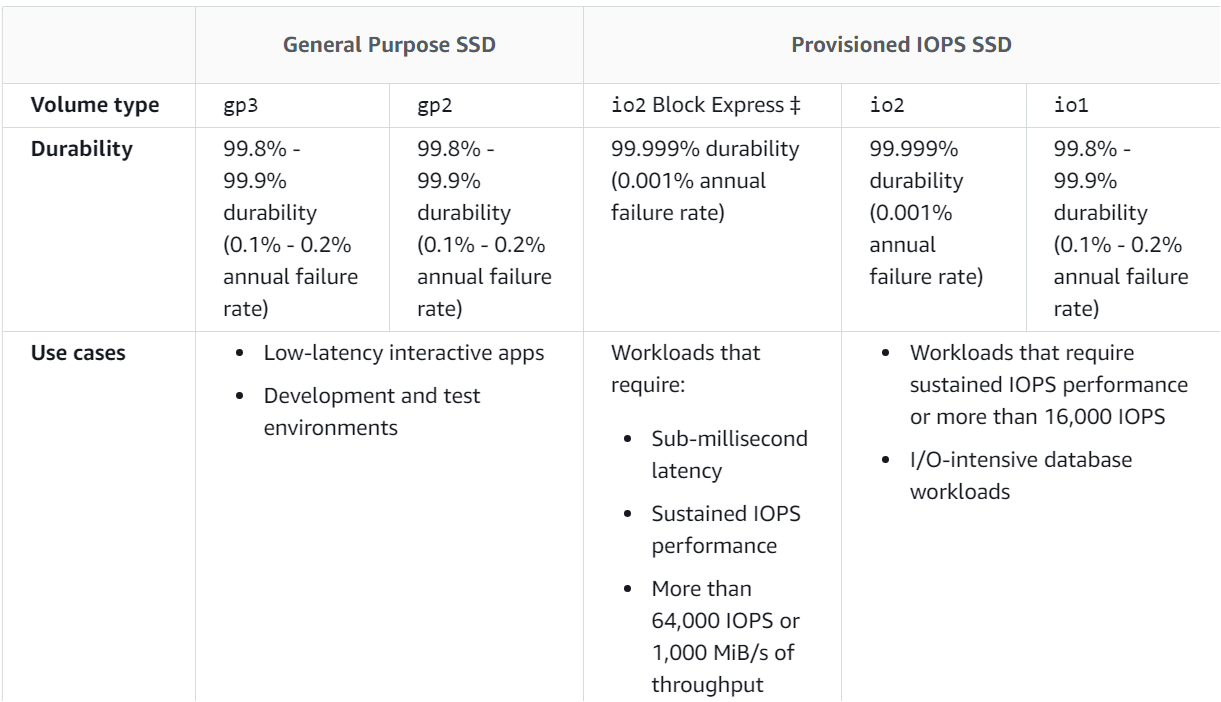Provisioning High I/O Throughput for Mission-Critical Databases in AWS
Question
A company wants to set up EC2 Instances in AWS.
These instances will be hosting databases that will have a lot of read and write activity.
You need to provision the volumes with high I/O throughput.
These instances will be hosting mission-critical transactional databases, and they will require consistent baseline performance with low latency.
Which of the following would you implement?
Answers
Explanations
Click on the arrows to vote for the correct answer
A. B. C. D.Correct Answer: B.
Provisioned IOPS SSD (
io1
and
io2
) volumes are designed to meet the needs of I/O-intensive workloads, particularly database workloads, that are sensitive to storage performance and consistency.
Option A is incorrect since Provisioned IOPS is better if you need Low-latency workloads.
Option C is incorrect since Cold HDD is for less frequently accessed workloads.
Option D is incorrect because Throughput Optimized HDD is used for Big data and Log processing.
For more information on monitoring volume status, please visit the below URL-
https://docs.aws.amazon.com/AWSEC2/latest/UserGuide/ebs-volume-types.html
For mission-critical transactional databases that require consistent baseline performance with low latency, the best option would be to choose the volume type as Provisioned IOPS.
Explanation:
- General Purpose SSD (Solid State Drive) volumes are designed for a wide variety of workloads and provide a balance of price and performance. They deliver good performance for most workloads but may not provide the consistent performance required for mission-critical transactional databases.
- Cold HDD (Hard Disk Drive) volumes are designed for infrequently accessed data and offer low cost per gigabyte. They may not provide the required I/O throughput for databases with heavy read and write activity.
- Throughput Optimized HDD volumes are designed for big data workloads that require low-cost storage, and throughput-optimized performance. They may not provide the required consistent baseline performance and low latency for mission-critical transactional databases.
On the other hand, Provisioned IOPS SSD volumes are designed to deliver predictable and consistent I/O performance. This makes them ideal for mission-critical transactional databases that require high I/O throughput and low latency. Provisioned IOPS volumes allow you to specify the amount of IOPS (input/output operations per second) you need, which ensures that the performance is consistent and predictable.
Therefore, the best option for this scenario would be to choose the volume type as Provisioned IOPS.
